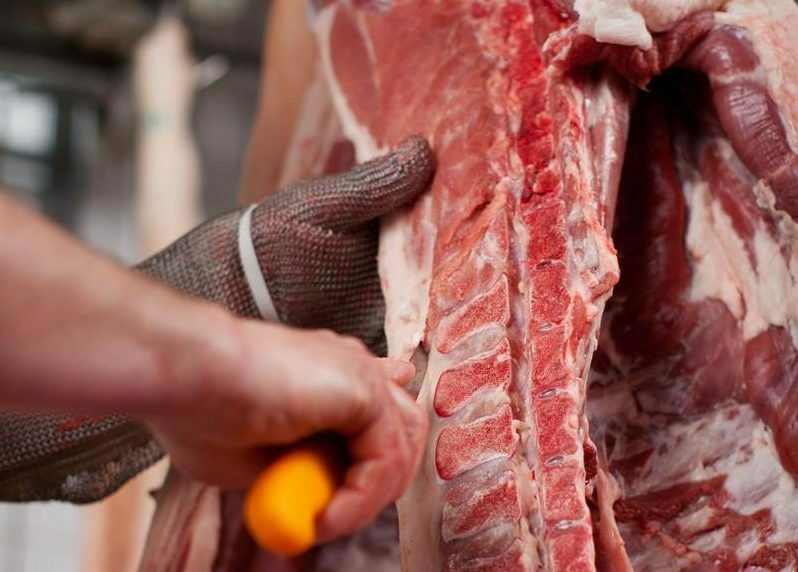Meat Industry Ireland (MII) said that “every effort” has been made to recruit meat processing plant workers domestically in the last number of years.
Today (Tuesday, April 13) the Joint Committee on Enterprise, Trade and Employment continued its pre-legislative scrutiny of the general scheme of the Employment Permits (Consolidation and Amendment) Bill 2019.
Representatives from MII and Migrant Rights Centre Ireland (MRCI) attended, and Philip Carroll of MII told the committee that employment in the meat sector is “based on full-time direct employment and comprises a mixture of Irish and EU employees who represent some 80% of the total workforce”.
“Irish staff continue to represent the single largest nationality. The majority, mainly European nationals, have worked in Ireland in the years since 2005, after EU enlargement, when a significant number of workers came from central and eastern Europe,” he said.
“The economic downturn here halted the pace of EU migration in the meantime and although the economy recovered, a much smaller number of people came to Ireland and so the meat sector reached the point in 2015 where it lacked sufficient resources to service important export markets.
“Through the employment permit scheme, the industry recruited skilled knifemen internationally to fill the resulting vacancies. Although every effort has been made to recruit at home, the reality we faced was that in a recovering economy where the domestic labour market was tight, there was little or no supply capacity available to meet the growing needs of the sector.
“In 2018, domestic labour sources had dried up to the extent that vacancies for general operatives were unfillable within the EU-EEA economies and the wider agri-food sector – including meat, dairy, and horticulture – secured a permit scheme for general operatives to fill the vacancies.
“Between 2015 and December 2019, specific quotas of permits – approximately 3,160 in all – were made available for meat processing.”
MII welcomes the proposed changes to permits legislation
Carroll added that the meat sector forecast is that international sources of labour “will continue to be in demand under the two existing permit schemes available to the sector”.
“The shortages we face are unlikely to abate as we increasingly find that the sector is competing to attract the attention of a reduced pool of resident workers,” he said.
MII said it welcomes the proposed changes to permits legislation, which the government has stated are concerned with “increasing its agility and effectiveness while retaining the key policy focus of supporting the economy and the labour market through evidence-based decision making”.
“While our overall preference is still to recruit within the Irish and EEA labour pools, this labour source is not currently available in sufficient numbers, and our sector will have a continuing need to fill vacancies from abroad,” Carroll said.
“Otherwise, we face the risk to businesses and limit their ability to develop new market opportunities for Irish meat products.”
‘We disagree with the concept of seasonal work permits’
In her opening address, Edel McGinley of MRCI said that Ireland continues to be “very positive” for people who migrate here for work, “although we have seen poor conditions for workers exposed in many sectors of the labour market”.
“We would like to see this bill give equal rights and parity to all employment permit holders, similar to those given through critical skill permits,” McGinley said.
“Secondly, we disagree with the concept of seasonal work permits and temporary work permits that move. If the government pursues this approach, it needs to provide measures that allow people to easily transition to longer-term status and other work.
“We would also like to see a provision in the bill that allows access to the workplace relations bodies, not just the civil courts, for all workers, including undocumented workers.”
In terms of those who are recruited temporarily, such as seasonal workers, McGinley said the bill needs to allow for gradual mobility.
“In effect, this means full access to the labour market after two years, immediate rights to family reunion and the right to work for spouses and partners,” she added.
“This will help to simplify and streamline the employment permits system and negate the need for a range of schemes, regulations and administrative processes.”
